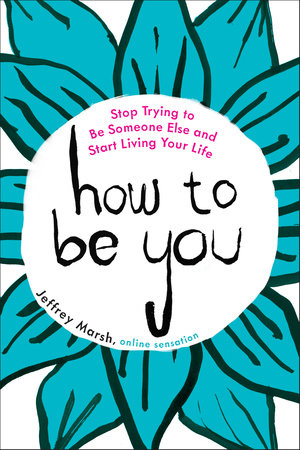Going Beyond ‘I Don’t Know’:
3 Tips for Having Honest Conversations with Your Teenager
by Jeffrey Marsh
I’m famous. Like, mega-famous. But of course, you’ve never heard of me! I’m this new kind of celeb who has an amazing following and hundreds of millions of fans, and it’s still rare when someone over 18 recognizes me. You see, I’m Internet famous. But things are changing. Nowadays I’m being recognized more and more outside of Internet circles. For a lot of reasons (partly because the world has been so crazy and scary) my message of kindness and self-acceptance is becoming important for everyone.
I couldn’t be happier! One group I love messaging with is parents. Kids message me about suicide and love and popularity. Parents message me about wanting their kids to grow up feeling more loved than they did. It’s truly beautiful to read these messages and I feel so lucky to be a bridge — to bring parents and kids together. Since I’ve messaged with thousands and thousands of young people, I was delighted when Brightly asked me to share some tips for parents. Below is the real scoop. I figured it was time we had an honest talk about your kids.
Don’t be afraid to talk to them like they’re kids.
Okay. Let’s be totes honest with each other. Your kids aren’t going to like you all the time. Or at least, kids unilaterally liking their parents is kinda … rare. I vividly remember the day when I was 11 and my grandmother became the first person to talk to me like I was an adult. She said, “How was your day?” And then she … listened. We just plain talked — like two peers — like people. I was floored. I remember thinking at the time that I wish my parents would just talk to me like that. “Why can’t they respect me? Why can’t they see the real me?”
Over the years, though, I’ve grown more and more glad for the times when mom and dad didn’t talk to me like that: I’ve realized the best parents set boundaries, the best peers don’t.
This is especially true when kids are struggling. Your kids need your openness and acceptance, but they also need structure and stability. You need to be the rule-maker sometimes and your kids won’t always like you. That’s okay and appropriate.
On the other hand, talk to them like they’re adults.
Wait wait woah. Okay I get it. As a writer, I’m supposed to be fancy enough not to completely contradict myself, but this isn’t a contradiction. It’s not either or. There is something instructive in how my grandma treated me that could work for all parents. I want you to talk to your kids like they are kids (see above) and talk to them like you would talk to another adult. Because…
- Life is a contradictory mysterious enigma, and
- Both ideas are actually good advice.
Yes, kids need boundaries and a sense of care that comes with discipline. But they also need respect. Try your best to listen to them and include them in family decisions, especially decisions that affect them.
Be frank with them. When someone tells me, “I don’t know,” I vow to follow them to the ends of the earth because I know that they will be honest with me. You aren’t required to know everything as a parent. That’s okay. This isn’t a test. When you say, “I don’t know,” or ask your kid “what were you thinking?” or “what do you see?” you affirm their adequacy and sense of self-worth.
Oh, just talk to them.
I guess what I’m trying to say is that communication is the most important thing. Too many young people complain to me that parents make decisions that impact the whole family with no warning, as if from “on high”. Stop that. Don’t tell your kids I said this, but they feel really insecure. They feel out of control. And your façade of having-it-all-together isn’t helping them. Share how out of control your life is sometimes. Share your I Don’t Knows. Share your vulnerability. Honesty and vulnerability are signs of respect, a signal to your child that you see their humanity.
Share you.
Sure. Don’t tell them private stuff they shouldn’t know about. Sure. Don’t talk to them like you talk to your best friend. But, I bet if you experiment, if try having a heart to heart or two, you might be surprised. You might find that your kid has grown. Maybe they’ve even come to understand that belonging and contributing to the family and to your relationship isn’t a bad thing after all.
You’ll need to communicate to find out. You’ll need to listen. You can do it. You can text, “Hey, let’s talk.” I believe in you.

